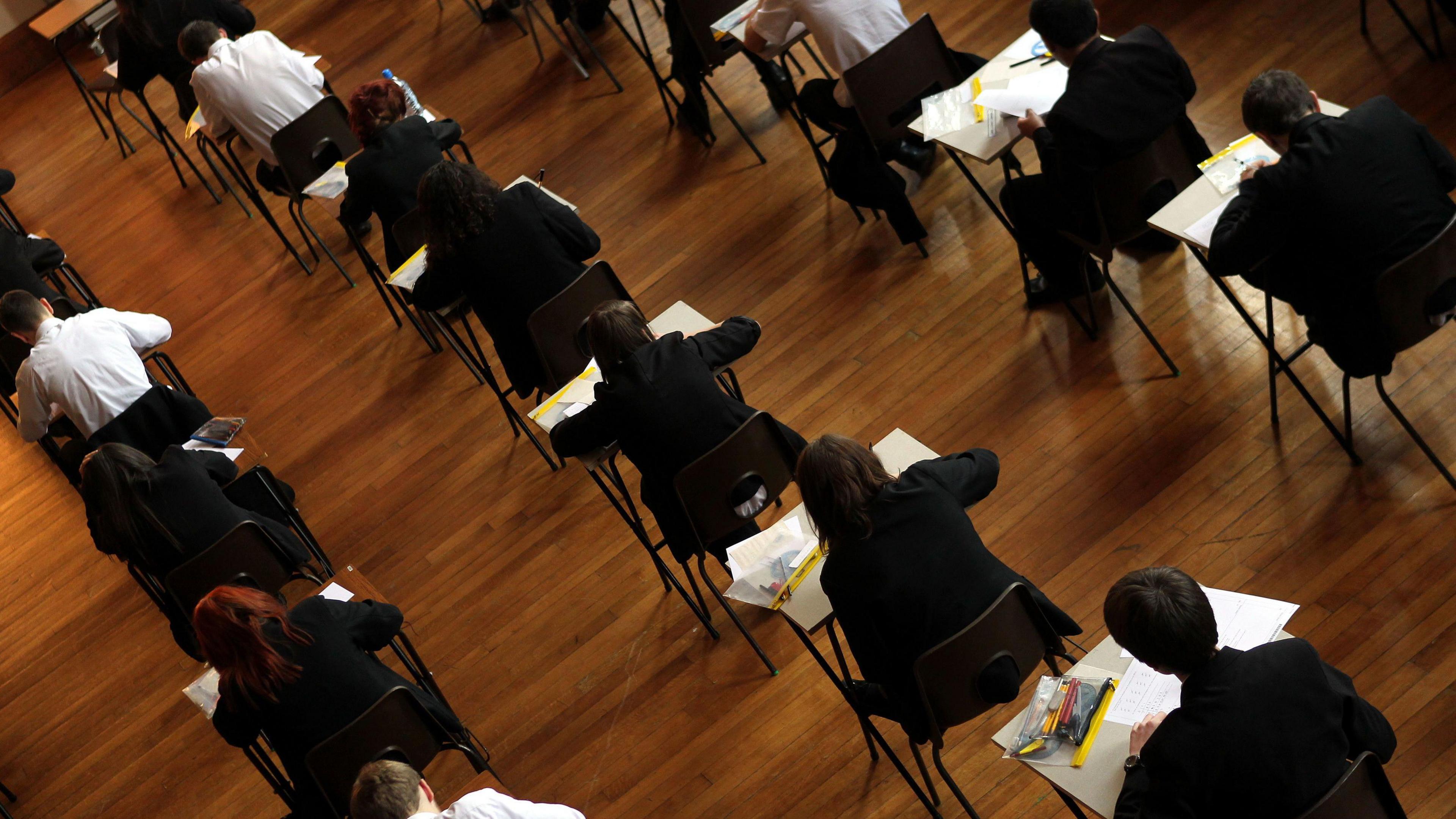Workshop helps teachers support dyslexic pupils
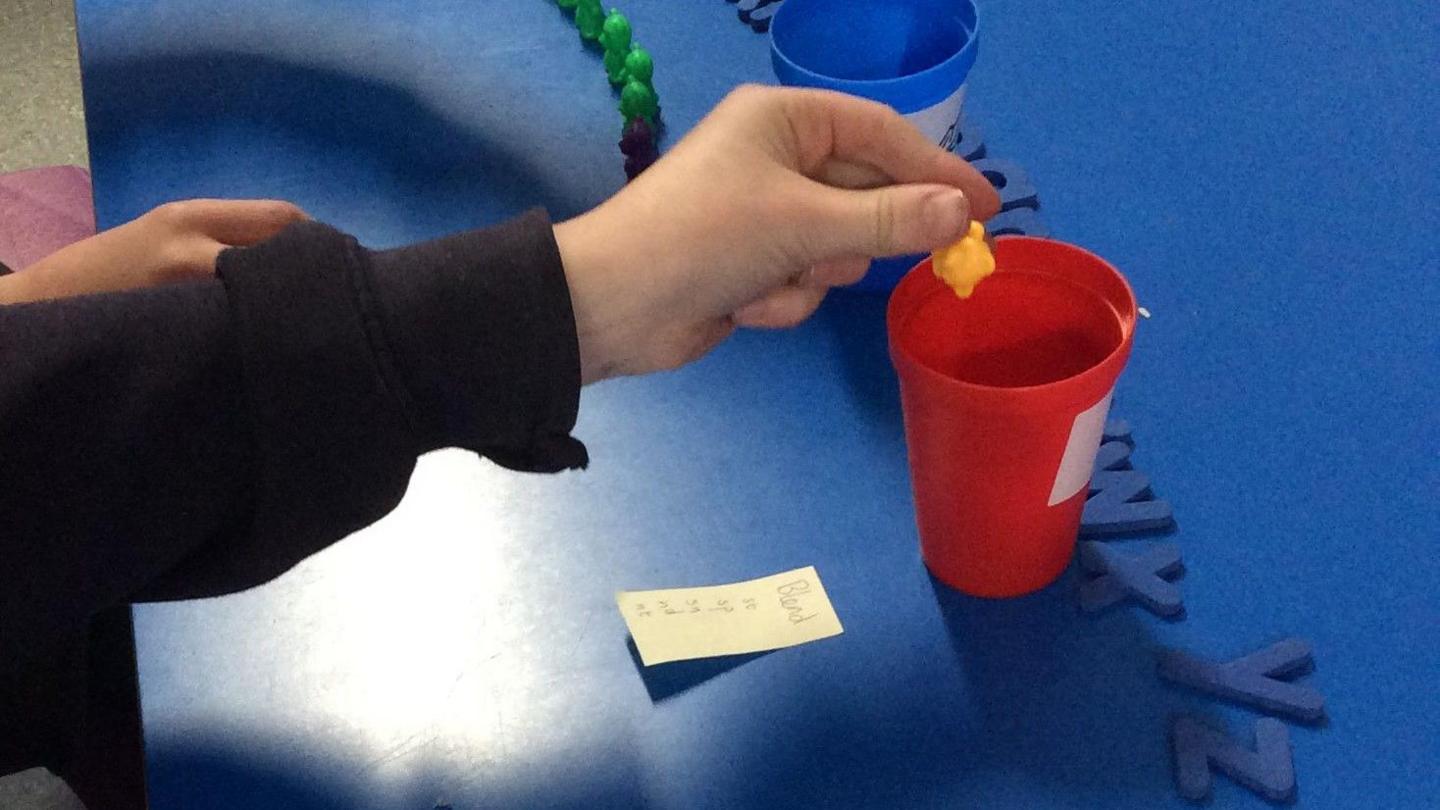
Multi-sensory learning was one style of teaching included in the workshops
- Published
Teachers are being given extra support to help them feel more confident supporting children with dyslexia, thanks to an intervention project and workshops.
Bath Spa University and Gloucestershire Dyslexia Association collaborated to create activity-led workshops for 60 staff at six schools.
It included a more in-depth project with two schools, using different techniques.
Senior lecturer in Dyslexia and Inclusion Dr Georgia Niolaki, who is dyslexic herself, said the findings of the research are "promising".
According to Dr Niolaki, the project came about "as there is research evidence that to support students with dyslexia, teachers need a sound knowledge of it first".
"The workshops tried to provide as much practical experience and support in an active learning environment as possible in three hours," she added.
Dr Niolaki said: "We supported the teachers in putting themselves in the students' situation, and, and this was achieved through the case studies simulation activities."
Surveys were conducted before and after the workshops, with staff highlighting the areas they felt they required improvement in, and feeding back after it had concluded.
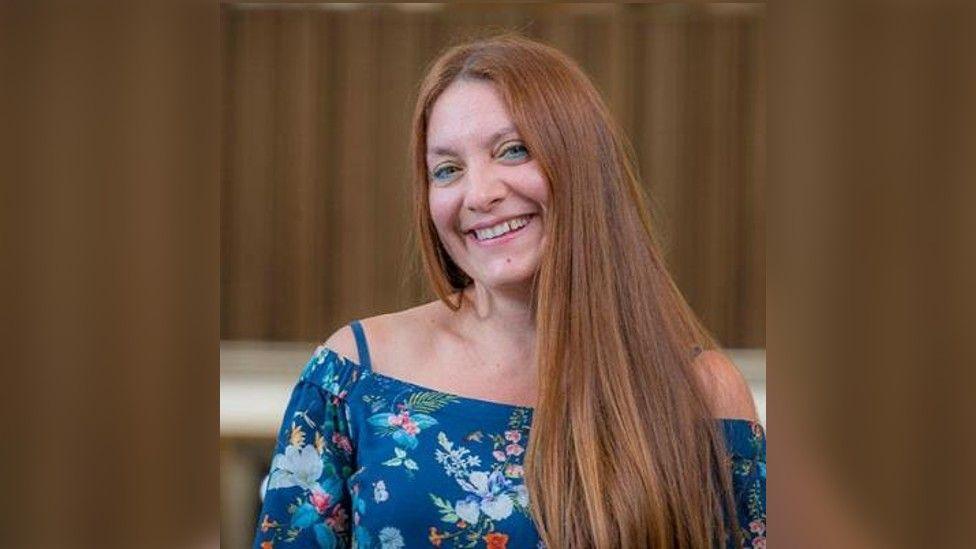
Dr Niolaki said the self-esteem of children has increased as a result of the project
The pilot focused on improving not only literacy skills in dyslexic learners, but their confidence and self-esteem.
"The support we did with teachers last year recognised the needs of learners who might not have a diagnosis of dyslexia so we provided case studies to help them understand the traits these individuals present in relation to literacy and emotional needs," said Dr Niolaki.
"The findings are truly promising, demonstrating improvements not only in literacy scores but also in intellectual development and students' self-esteem and school status.
"The next step is to seek further funding to extend this knowledge to more schools."
'More empowered'
Wendy Hawkins, a trustee of Gloucestershire Dyslexia Association, works as a specialist learning support teacher.
"We have two teaching assistants working with dyslexic children at Rednock and as professionals, they felt more empowered and more knowledgeable," Ms Hawkins said.
She added that children liked the "multi-sensory teaching" they received following the project, in addition to "overlearning", going over content again and again to make sure they fully understand it.
Ms Hawkins added she hopes to put together schemes of work together to support teachers at Rednock using the techniques developed during the pilot.
Follow BBC Gloucestershire on Facebook, external, X, external, and Instagram, external. Send your story ideas to us on email or via WhatsApp on 0800 313 4630.
Related topics
- Published30 May 2024
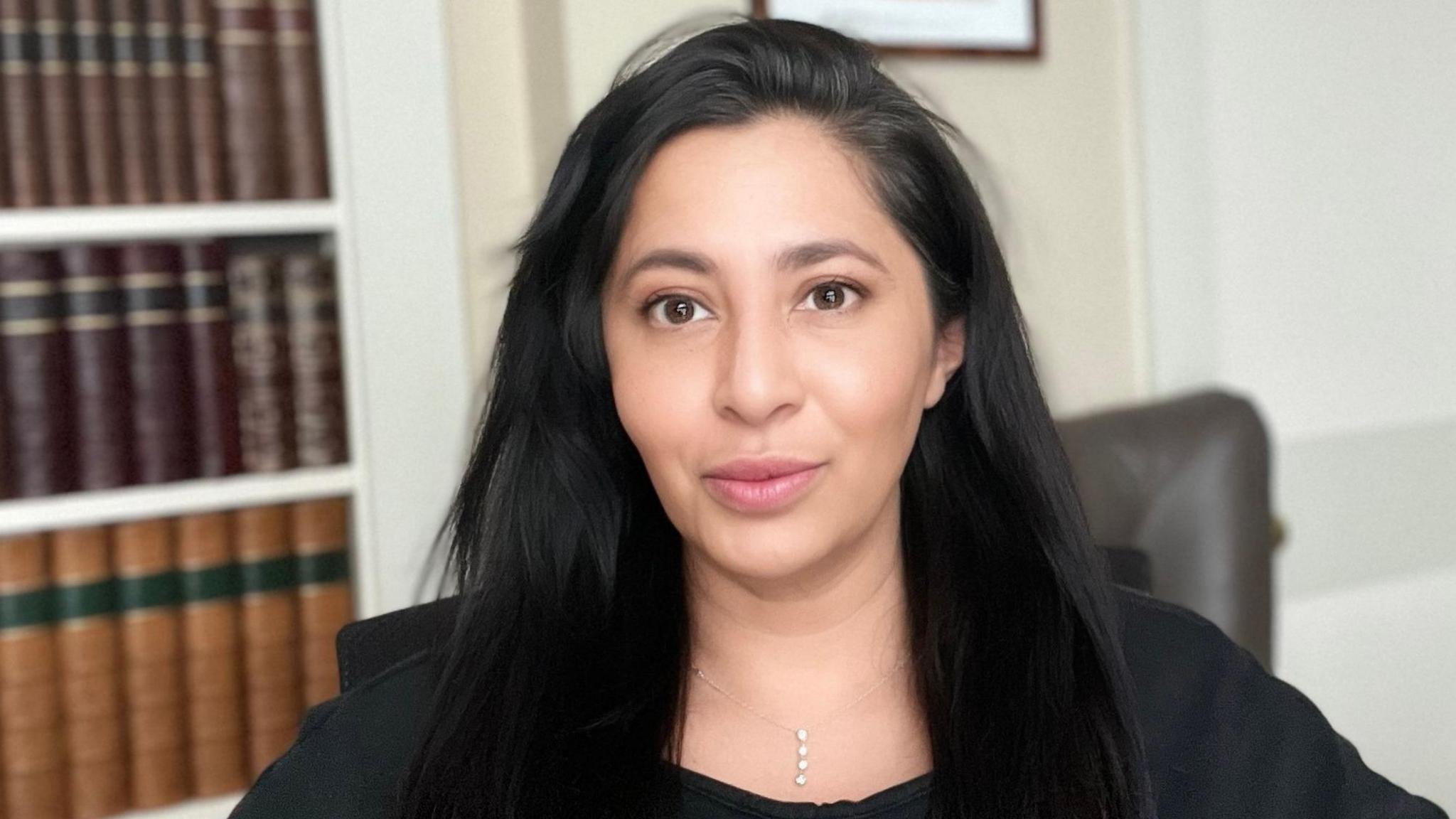
- Published2 March 2024
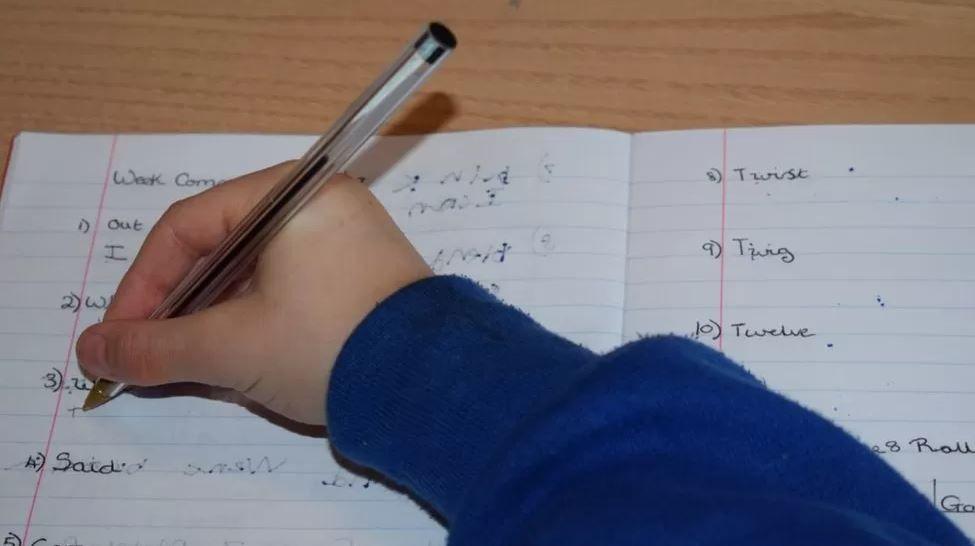
- Published4 December 2023
